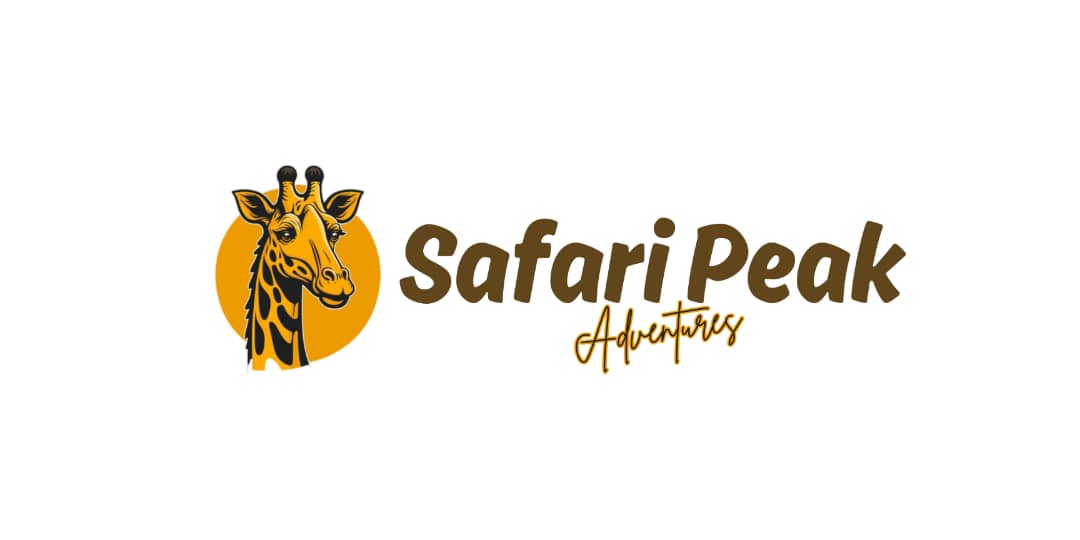Tanzania Safari Packages | Affordable Safaris in Tanzania & Zanzibar
A variety of affordable Tanzania Safari Packages can be chosen based on personal preferences and travel styles. Budget-friendly options include group safaris, where costs are shared among travelers, making the experience more economical. Mid-range packages offer comfortable lodges and tented camps, providing an excellent balance between cost and quality. For those seeking an exclusive experience, luxury safaris are available at competitive rates, allowing visitors to enjoy premium services and stunning accommodations.
Highlights – Tanzania Safari Packages & Zanzibar Beach
- Step into the Serengeti, where the vastness of the wilderness reminds you that your potential is as limitless as the horizon.
- Big Five Safaris – Experience up-close encounters with lions, elephants, leopards, rhinos, and buffalos in Tanzania’s most iconic national parks.
- Visit the breathtaking Ngorongoro Crater to witness the unyielding spirit of life, where every creature thrives against the odds.
- Step outside the ordinary and into a world where time whispers ancient secrets—immerse yourself in the authentic traditions of the Maasai and Hadzabe tribes.
- Embark on a journey to the ‘Roof of Africa’ and stand in awe as the twin peaks of Mount Kilimanjaro, crowned with eternal ice, reveal a panoramic spectacle unlike any other.
Trip Organization
- Our comprehensive Tanzania safari packages are expertly led by professional, highly experienced driver-guides, ensuring an exceptional and insightful wildlife experience.
- Enjoy seamless transportation, including airport transfers and guided game drives in customized 4WD Land Cruisers with pop-up photographic roof hatches—designed for optimal wildlife viewing and photography.
- We provide unparalleled safari experiences with carefully selected accommodations—ranging from luxury to mid-range and budget—paired with expertly prepared cuisine and warm Tanzanian hospitality for a truly enriching adventure.
Destination: Northern Tanzania & Zanzibar
Location: Serengeti National Park, Ngorongoro Conservation Area, Tarangire National Park, Lake Manyara National Park & Zanzibar Beach
Best Time to Visit: Year-round
Physicality: Comfortable & Enjoyable

Skilled Professionals
Certified guides ensure your safety and create unforgettable adventures, from Kilimanjaro climbs to Tanzania explorations.

Personalized Adventures
Tailored itineraries designed to match your preferences, creating journeys that align with your interests and pace.

Unmatched Hospitality
Our team provides exceptional service, ensuring every step of your journey is seamless, enjoyable, and unforgettable.
Our Top Tanzania Safari Packages
From expert tips for first-time Tanzania safaris to booking your recurring luxury holidays, Safari Peak offers Tanzania safaris, Kilimanjaro climbs, and serene Tanzania beach holidays for 2025/2026. Discover your dream escape!
Tailormade Tours
Experience the ultimate tailor-made adventures, crafted to match your travel dreams. From wildlife safaris to cultural immersions, we design personalized journeys that ensure unforgettable, seamless, and unique experiences just for you.
Kilimanjaro Trekking
Tours from Zanzibar
Why Choose Us
- Tailor-Made Tours From Luxury lodges to Budget camping, whatever your travel style - we will customize your tour.
- We operate safaris in all parks in Tanzania and arrange Mountain climbs & beach getaways.
- Our fully customized safari vehicles are thoroughly checked and serviced before every trip.
Our Top Tanzania Safari Packages Destinations
What Our Client Say
Verified Unbelievable Safari Experience We wanted to experience all that Tanzania had to offer in a wildlife safari and Zanzabar experience. We wanted to find a local company and settled on Safari Peak, and are so glad we did. Richard was so helpful and knowledgeable in working through the details of our dream trip. The trip was beyond our expectations and we can’t imagine a better experience. Our expert guide, Linus, was the best, leading us to wildlife sighting beyond our expectations, with “Wow” moments everyday. Richard, accompanied us to make sure that all aspects of our trip were perfect. Every accommodation, including our 4 night stay in Zanzabar, were fantastic. Our only regret was ending our trip. It felt like leaving family. Thank you Safari Peak. We feel so lucky to have shared this “once in a lifetime” experience.Verified Unforgettable 3-day safari in Tanzania – just perfect! We went on a three-day safari in Tanzania and are still overwhelmed by the impressions. Everything was perfectly organized from start to finish – a big thank you to Richard and his great team!The lodges, rides and overall planning were excellent. Every moment was thought through to the last detail so we could enjoy the safari to the fullest. We were particularly moved that Richard and his team organized my marriage proposal so wonderfully. It was a magical moment that we will never forget, and without the professional and warm support it certainly would not have become so unique.Our personal highlights were the three impressive parks: 1. Ngorongoro Crater – absolutely breathtaking and for us the most beautiful experience. 2. Tarangire – herds of elephants and a wonderful landscape. 3. Lake Manyara – with its special wildlife a perfect end to the trip.We can recommend this safari without restriction – for us it was an unforgettable adventure full of emotions, nature experiences and loving organization. Thank you for this unique experience!Verified Wonderful 7 day Kilimanjaro Trek and 6 day Serengeti Safari with local company. Safari Peak organised a 2 week holiday for my son and I in July. This included transport to/from Nairobi and Arusha; hotel in Arusha, the 7 day Machame camping trek route up Kilimanjaro and a 6 day jeep safari across the Serengeti up to the north for the wildebeest migration.Safari Peak is a local company based in Arusha. They were pro-active and responsive in organising everything. They put together a great team of 13 for the trek: The guides were really helpful, the food for breakfast, lunch and dinner was pretty good for camping around 4000m (we always had too much!) and there was plenty of water. It was an amazing experience overall.For the safari, the accommodation choices were excellent including 3 nights in luxury tented camps in the Serengeti – definitely a recommendation to either wake up watching animals graze, and/or to listen to all the different animals around the tent at night.We saw all the animals the Serengeti is famous for, and a lot of these close up to the vehicle, but my favourite experience was driving off the main tracks, away from other vehicles and just parking up and listening to all the birds and noises, and if your patient the animals too.There was a few moments with the Safari Peak team which made our time in Tanzania feel very special and unique, and we got to feel the warmth of the people who live there. Safari Peak made us feel very welcome in Tanzania and left us with a lifelong impression of the people and country. Overall, I would strongly recommend Safari Peak.Verified The Majestic Kilimanjaro **Unforgettable 8-Day Lemosho Route Trek with Safari Peak & Guide Sistus**I just returned from the incredible 8-day Lemosho Route trek to Mount Kilimanjaro, and I am beyond thrilled with my experience, thanks to Safari Peak and our amazing guide, Sistus. From start to finish, this trip exceeded all expectations, and I couldn't have asked for a better team to support me along the way.Sistus was the highlight of the entire trek. He is an exceptional guide—knowledgeable, experienced, and incredibly supportive. His expertise on the mountain and its terrain was evident, but what stood out the most was his calm and encouraging presence. He took the time to ensure that everyone in our group was comfortable, well-informed, and properly acclimatized, offering guidance at every step. His sense of humor and positive energy were a huge morale booster, especially on the more challenging days.The Lemosho Route itself was breathtaking, with every day bringing a new, stunning landscape—dense forests, open savannahs, and the dramatic alpine desert as we neared the summit. The 8-day itinerary gave us the perfect balance of time for acclimatization, which helped avoid altitude sickness and made the whole experience much more enjoyable.The team from Safari Peak did an amazing job with logistics. Our porters were always hard at work, ensuring that our camps were set up before we arrived and that everything was in order. The food was consistently delicious and hearty, and I was amazed at the variety they managed to prepare at such high altitudes. The tents were well-kept, and we felt truly cared for during the entire trek.Summiting Kilimanjaro was an emotional and triumphant moment, and I owe so much of that success to Sistus and the whole Safari Peak crew. Their professionalism, expertise, and genuine care made this once-in-a-lifetime adventure a reality.If you’re looking for an exceptional Kilimanjaro experience, I highly recommend Safari Peak. Ask for Sistus as your guide—you won’t regret it!Verified Authentic Africa safari , with unforgettable Memories We had wonderful moments in Africa , Richard and his team 'safari peak ' organized us 7 days Tanzania safari from Tarangire , Serengeti and Ngorongoro with classic safari jeep and accommodation .Real enjoyed , we can't wait for the next Kilimanjaro adventure.Thank you safari peak teamVerified Rare moment in Africa with Safari Peak Adventure We had awesome 7 days in Africa with safari peak , our guide Godlisten picked up JRO and started our safari immediately, we enjoyed more in Serengeti spot all big 5 .Thanks for the team support , Safari peak.Verified Kilimanjaro Tour, Mandara Hut Richard and his father took us to the Mandara Hut. On our way we made a stop where we received lunch boxes. The whole trip took us one day. It was adventurous but we fully enjoyed it.Verified Safari in Tanzania with Safari peak Magnificent safari to the Serengeti, Ngorongoro and Tarengire. Erick and his team were our guide throughout the stay, she is really a great guide, who speaks French very well, who knows all the animals, who takes the time to explain well and makes sure that we see all things clearly. wildlife in parks. Thanks to him, we will have seen the Big5! The 4x4 was really good, very spacious and modern! Safari Peak is a very serious agency that I highly recommend.Verified Rare moments always with safari peak I came second time in Tanzania I had great moments with safari Peak and all of my guide , Richard helped me always with tailor made safaris , i went serengeti for two nights and one night Ngorongoro!!Thanks youVerified enjoy naturality with african kids adventures i had trip to chemka hot spring kikuletwa , with my friends ,last sunday for real it was amazing enjoy the naturei real recomend it for day trip and others ,to explore the african naturalityShowing our latest reviewsVerified by TrustindexTrustindex verified badge is the Universal Symbol of Trust. Only the greatest companies can get the verified badge who has a review score above 4.5, based on customer reviews over the past 12 months. Read more
Most Popular Question about Tanzania Safari Packages
Curious about Tanzania Safari Packages? We’ve gathered answers to the most popular questions, from safari experiences and Kilimanjaro climbs to beach holidays and cultural tours, to help you plan an unforgettable journey.
